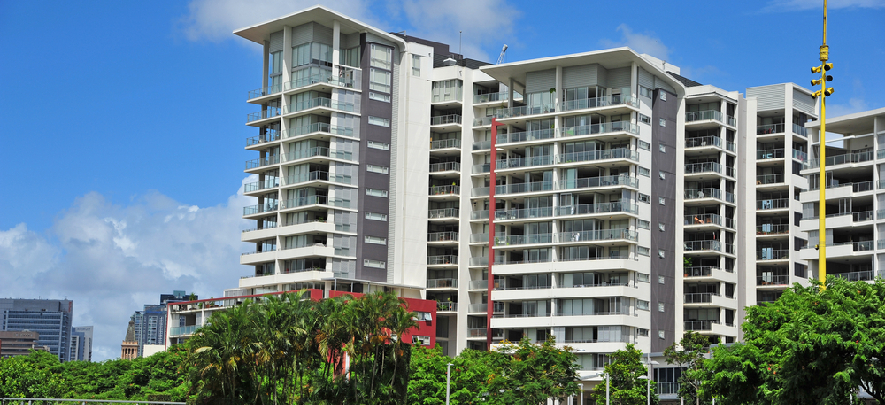Should GST be paid by co-operative housing societies for maintenance activities?

GST
285 week ago — 8 min read
Background: Co-operative housing societies are units registered under the co-operative laws of respective states. According to Section 2(16) of the Maharashtra Cooperative Society Act, 1960, ‘housing society’ means a society, the object of which is to provide its members with open plots for housing, dwelling houses or flats; or if open plots, the dwelling houses or flats are already acquired, to provide its members common amenities and services. If the turnover of a housing society is more than INR 20 lakhs then it needs to register GST under section 22 of CGST act 2017. Askok Kumar Bansal of B.A.K.D & Co. opines that GST should not to be paid by Co-operative Housing Societies as far as the maintenance activities are concerned.
Presently, GST is paid by co-operative housing societies which look after the upkeep of the common areas like compound, staircase and terrace. The society arranges to pay for the security, cleaning, repairs, taxes, water, common electricity, etc. and also pays for the ancillary services like accounting, auditing, caretaker, etc.
In most of the cases, the co-operative housing societies are raising monthly bills on members which consist of two parts, one is property tax on which GST is not being charged and another is ‘maintenance charges’ on which GST is being charged.
Also read: No e-way bill if GST returns for 2 months are not filed
However, in my opinion, GST is not to be paid by co-operative housing societies as far as the maintenance activities are concerned. Let us see how.
In GST, tax incidence is determined when there is supply of goods, services or both. Section 9 is the charging section which entitles the government to levy tax on the ‘supply’ of services. Hence meaning of supply is of utmost significance and it is a base for deciding the taxability of any transaction under GST.
Section 7 defines supply as:
- All forms of services for a consideration in the course or furtherance of business;
- Activities in Schedule I without consideration and
- Activities in Schedule II.
This is an inclusive definition, so it is possible to argue that anything, even if not mentioned specifically in Sec. 7 can be treated as a supply. However, following ejusdem generis, when a limited list of specific things also includes a more general class, the meaning of that more general class shall be limited to that of the specific items in the list. Thus, in my opinion, GST shall not be levied on the activities not included in Schedules I and II, unless in the course or furtherance of business.
So now the importance shifts from the meaning of ‘supply’ to the meaning of ‘business’.
Section 2(17) defines business which is again an inclusive definition. Sec. 2(17)( e ) accordingly says that business includes provision by a club, association, society or any such body (for a subscription or any other consideration) of the facilities or benefits to its members. The word ‘society’ in section 2(17))(e) may lead someone to the view that it means a co-operative society. However the definition of a 'person' u/s 2(84) which includes within person’s definition, inter-alia, a Co-operative Society registered under any law relating to co-operative society as well as a society registered under the Societies Registration Act, 1860 makes it very clear that the word society appearing in Section 2(17)(e) does not mean a co-operative society.
A conjoint reading of Sec. 2(17) and 2(84) makes it clear that the activities of CHS consisting of upkeep and maintenance of the society and for this purpose collecting money from the members do not constitute business.
It may also be relevant to note that the definition of taxable supply as per section 2(108) of CGST Act, 2017 is “A supply of goods or services or both which is leviable to tax under this Act.” However GST Act has not specifically stated the tax rate applicable to supply of services by Co-operative Housing Societies.
It will be educating to know as to how the confusion arose on the exigence of GST on such contributions.
Notification No. 12/2017 Central Tax (Rate) dated 28.06.2017 at sr.no.77 provides for the following exemption to housing societies:
Service by an unincorporated body or a non-profit entity registered under any law for the time being in force, to its own members by way of reimbursement of charges or share of contribution –
(a) As a trade union
(b) For the provision of carrying out any activity which is exempt from the levy of Goods and Service Tax
(c) Up to an amount of INR 5000 per month per member for sourcing of goods or services from a third person for the common use of its members in a housing society or a residential complex
The notification, issued to clarify exemption available to a society, in general, had the unintended consequence that it was interpreted to mean that all the services by housing societies, other than those specified in Notification no. 12/2017 are liable for GST.
The confusion compounded further when the Tax Research Unit (TRU) of Government of India issued Circular No. F.No. 332/04/2017 dated 05-09-2017 which contained answers to some Frequently Asked Questions(FAQs). One of the answers read as under: “Sinking fund, repairs & maintenance fund, car parking charges, non- occupancy charges or simple interest for late payment, attract GST, as these charges are collected by the RWA/Co-operative Society for supply of services meant for its members.”
It must be kept in mind that the above notification as well as the above circular are not laws, but are only clarifications issued by the officers and are not binding upon the general public with the force of law.
Also read: CBIC allows businesses to revoke their cancelled GST registrations by 22 July 2019
It may also be appreciated that though Service Tax was being charged on the Co-operative Housing Societies, Calcutta High Court (Saturday Club Limited), Gujarat High Court (Sports Club of Gujarat Limited) and Jharkhand High Court ( Ranchi Club Limited) have held the Service Tax levy illegal on the principle of Mutuality. All these Hon. High Courts held that “Services provided by club to its members cannot be charged Service Tax , as levy of Service Tax requires presence of two persons viz. service provider and service receiver, which was not the case in case of club and its members , who are governed by the principle of mutuality.
More importantly, Hon. Mumbai CESTAT, in case of Tahnee Heights co-op hsg. Society ltd. & others Vs. Commissioner of Service Tax, Mumbai, in their order dated 18 December, 2014 also held Service Tax on Co-operative Housing Societies illegal.
Thus, in my opinion, a co-operative housing society need not charge GST on the contribution by members for upkeep and maintenance of society.
Also read: GST Council announces tax cuts in real estate
Image courtesy: shutterstock.com
To explore business opportunities, link with me by clicking on the 'Connect' button on my eBiz Card.
Disclaimer: The views and opinions expressed in this article are those of the author and do not necessarily reflect the views, official policy or position of GlobalLinker.
View ASHOKKUMAR 's profile
SME Inspirations
Most read this week













Comments
Please login or Register to join the discussion